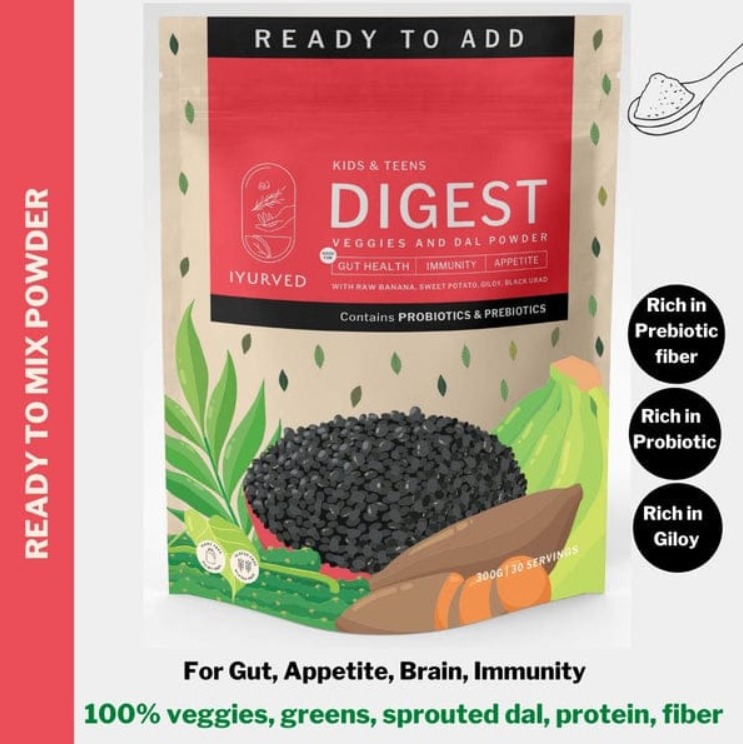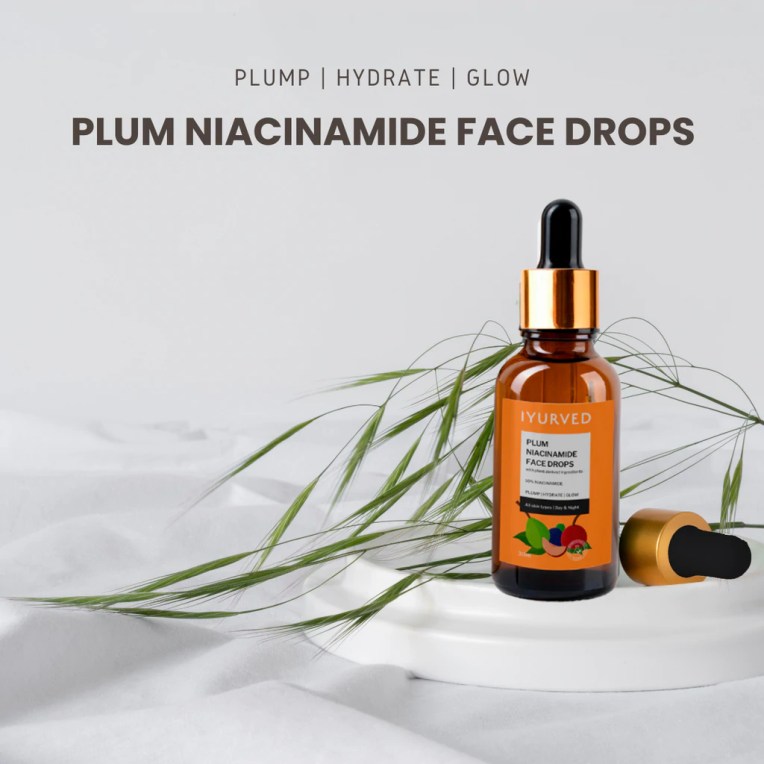While your wisdom and confidence may boost as you age, but same isn’t happening for many of your hormone levels. Entering in menopause is a significant transition in a woman’s life. Menopause, which begins one year after your last period, can cause noticeable changes in your skin. When your hormone levels drop, your skin can become dry, slack, and thin. You might notice that you have more hair on your face and less on your scalp. Let’s look at how menopause affects your skin, reasons for menopause symptoms and how you can fight the visible signs of ageing that are common during this time of life.
WHATSAPP for concerns like Speech Delay, Low Weight, Frequent Illness, Hyperactivity, Low Concentration, Weak Eyesight, Improper Sleep, Pigmentation, Pores, Face Marks, Fine Lines , Lactation etc.

What are the reasons for menopause symptoms?
Visible ageing signs can appear at any age, and intrinsic ageing within the skin begins around the time we reach adulthood. We lose about 1% of our collagen every year after the age of 18. This is especially noticeable during menopause, when collagen loss accelerates dramatically. During the first five years of menopause, estrogen deficient skin loses up to 30% of its dermal collagen. After menopause, collagen continues to decline at a steady rate of about 2.1 percent per year.
Collagen and elastin, two connective tissue proteins, aid in the maintenance of skin volume. When collagen and elastin production slows, the skin’s middle layer, known as the dermis layer, can lose volume, resulting in sagging skin and deep wrinkles .
Estrogen has an impact on more than just collagen production in the skin. In fact, the skin is the most affected non-reproductive organ by estrogen.
Changes in estrogen production can also shows menopause symptoms like under-eye creping and wrinkles. Some of the first signs of ageing skin appear under and around the eyes.
How Menopause Affects The Skin?
We’ll now look at the most common skin issues that many women experience during menopause.
- Dry Skin: During menopause, your skin begins to thin, with the outer layer becoming less efficient at holding water. Estrogen is not only responsible for collagen levels, but also for the oils that keep your skin moisturized. In addition to being annoying, it prevents you from looking your best.
- Itchy Skin: When your skin dries out too much during the transition, you can develop pruritis, a feeling of itchiness that makes you want to scratch and scratch. This can manifest itself in the face, arms and legs, back, or chest.
- Wrinkles: More skin cells die or atrophy as collagen is lost and produced in lower amounts during menopause. As a result, the skin’s appearance changes and wrinkles appear.
- Hyperpigmentation: Melanocytes, the skin cells that produce melanin, the pigment responsible for skin colour. Women who have never had problems with pigmentation will notice freckles or large brown patches on their cheeks or around their mouth.
- Sweating: Thermoregulatory sweating is a mechanism used by your body to regulate its internal temperature. Sweating often increases during menopause and is associated with hot flashes.
- Dark spot: Dark spots on your skin can appear unexpectedly. This is because years of sun exposure can cause pigment-producing cells to overproduce melanin.
- Acne: Hormonal imbalances can result in the unfortunate development of adult acne in many menopausal women. Stress, another common symptom of menopause, causes your body to produce androgens in addition to cortisol. Because androgens can stimulate the oil glands in your skin, they frequently cause acne outbreaks.
12 INGREDIENTS to KEEP SKIN HEALTHY:
1. ALOE VERA:
This is a well-known substance that boosts collagen production. It aids in the stimulation of fibroblasts, which create elastin and collagen fibres. The amino acids in aloe vera soften the skin, and the zinc, which acts as an astringent, helps to tighten pores. Overall, aloe vera’s cell growth stimulating activity enhances skin integrity, increases collagen creation, and reduces wrinkle appearance.
Also, check (Hyperpigmentation : Here’s all you need to know)
2. GLYCERIN:
This humectant is a dry skin superhero. Glycerin has antimicrobial properties and is well suited for almost all types of skin. It helps minimise the water loss in your skin and balances the skin pH. Additionally, it draws moisture to the skin and creates a protective layer which helps in keeping the skin healthy and glowing.
In skin care products, glycerin is majorly used as an occlusive that traps moisture in the skin.
3.PAPAYA:
This fruit extract is rich in vitamin A, vitamin C, enzymes and antioxidants too. Papaya contains the enzyme papain, which is present naturally in the fruit. This ingredient can be found in many skin care products.
Papain is the main enzyme in papaya that promotes face whitening, face acne scars and blemish. The richness of these nutrients and enzymes helps in improving the skin’s collagen content and reduce wrinkles on face. Moreover, it helps skin healing and fights oxidative damage. When applied topically, it prevents the breakdown of elastin and collagen, enhances secretion of collagen, tightens skin, reduces wrinkles and menopause symptoms.
Also check 9 Home Remedies for Uneven Skin Tone
4. GUAVA:
Due to the presence of vitamin C, antioxidants (carotene and lycopene), vitamin B and vitamin A, guava is regarded as an important collagen-building component. Antioxidants protect cells from injury, aid in cell repair, and increase collagen formation. Guavas also contain a high vitamin A concentration, which is necessary for maintaining healthy skin membranes.
Guava can likewise help dispose of blemishes, red and dark spots or skin pigmentation from your face. Guava fruit extract, in addition to its health benefits, aids in skin hydration when applied to the skin. Moreover, as guava has antimicrobial properties it may reduce the inflammation caused by dry skin.
5. MULETHI (LICORICE):
This herb is rich in antioxidants. The active components and amino acids present in licorice helps in skin rejuvenation and protection in various ways. Studies show that licorice in addition to skin hydration, helps regenerate elastin and collagen in the skin. Thus, making the skin smooth and firm. Licorice root extract is a common ingredient used in many skincare products to lighten the discoloration or skin pigmentation.
6. VITAMIN C:
This vitamin is a viable supplement to enhance collagen production. Vitamin C plays a vital role in collagen regulation and synthesis in the body. The collagen skin fibroblast has an absolute dependence on vitamin C for its production as it directly triggers the DNA. Thus, it helps a lot to reduce menopause symptoms – skin pigmentation, wrinkles on the face and make the skin look young and youthful.
Also, check How Skin changes after 35?
7. SAXIFRAGA PLANT:
Saxifraga extract works as an antioxidant to protect the skin from free radicals in the environment. The plant also has astringent properties that temporarily tone and tighten the skin while also degreasing oily skin. Finally, Saxifraga is researched to have skin-whitening properties.
8. KAKDU PLUM:
It is ideal for anti-aging because of its antioxidant properties and Vitamin C content, as it boosts collagen and reduces wrinkles around the eyes. It also neutralises free radicals, which are molecules that cause skin destabilisation. Vitamin C in Kakadu Plum extract brightens and gives your skin a natural-looking glow by balancing the uneven tone.
9. BURDEKIN PLUM:
Vitamin C in burdekin plums is important for skin health because it promotes wound healing and many other types of common skin concerns. Vitamin C also slows skin ageing because it is an antioxidant, and it is also required by the body for collagen production.
Also, check Quick Tips of Skin Care routine for Busy Moms
10. ILLAWARA PLUM
It contains antioxidants that protect the skin from free radical damage. It reduces inflammation and may have a soothing effect on the skin. When combined with sunscreen, the antioxidants in illawarra plum may help provide UV protection.
11. HYALURONIC ACID:
The sodium salt of hyaluronic acid (HA) is sodium hyaluronate. HA is again one of the important ingredients that boosts the collagen production in the skin. The presence of amino acids makes this ingredient integral for collagen production. Studies show that sodium hyaluronate apart from skin hydration helps in reducing menopause symptoms, such as wrinkle depth, skin pigmentation and improves elasticity of the skin.
Also, check How to get rid of Stretch Marks?
12. NIACINAMIDE
It is a type of vitamin B3, an essential nutrient that has anti-aging properties. Outside stressors are prevented from causing destruction on your complexion by niacinamide, which promotes a brighter, smoother appearance. It aids in the restoration and strengthening of the skin.
Products
It’s no SECRET that following an Ayurvedic lifestyle has numerous advantages. This unique collection of skin care product for adults is an easy solution to various skin related problems. Made with Proven Ingredients. No Silicone, No paraben, No sulfate. To know more about this product SHOP HERE

For improving Face Skin Texture, Repairing Dull Skin Cells & Ageing Lines| Use Bye Bye Age Plum Niacinamide face Drops | Made with NIACINAMIDE, ALOE VERA, KAKDU PLUM, BURKEDIN PLUM, ILLAWARA PLUM | 100% Natural | Sulfate-Free | Paraben & Silicon-Free | ORDER
CHECK MORE PRODUCTS FOR:
Immunity, Gut health, Digestion, Weight, Brain development, Speech delay, Epilepsy, Eye health, Hormones, Sleep, Hyperactivity, Bones and Overall growth








